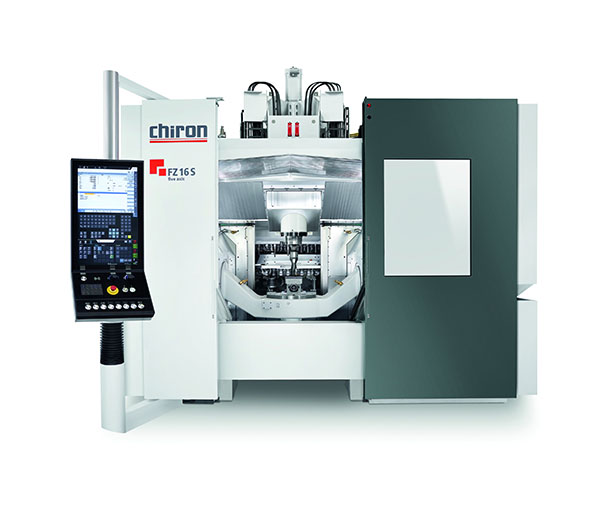
NSK says that its ball screws with nut cooling are setting new standards in the precision of machine tools with mechanical drive components. Confirmation comes not only from NSK’s own testing, but from machine tests conducted with machining centre manufacturer Chiron Group.
As a result of axial forces, acceleration and speed, the ball screw in a machine tool generates frictional heat that can cause the length of the screw to increase and lead to very slight but often critical positioning inaccuracies that may impair machining quality. To help avert this outcome, many machining centres use ball screws with hollow shafts. Coolant passes through the shaft to remove heat from the system. This method is quite costly however, because rotating screws require a rotary union in addition to the hollow bore.
A new approach is to cool the nut, which means there is no need for an expensive hollow bore and rotary union as cooling takes place directly at the point where heat generates. Another key benefit is that the heat generated in the ball screw no longer dissipates directly in the machine. This thermal decoupling between the machine and ball screw is important because any heat can impair dimensional stability.
NSK engineers designed the nut body so that changes to the ball screw caused by cooling have no negative influence on its performance profile, as confirmed by endurance tests at NSK’s Technology Centre.
Many years of co-operation with Chiron Group have also confirmed these results in practice. The use of NSK ball screws with cooled nuts means that machining centres of the Chiron 16 and 22 series operate with high precision, which not only applies to ease of positioning, but to machining accuracy and surface quality.
For further information
www.nskeurope.com















